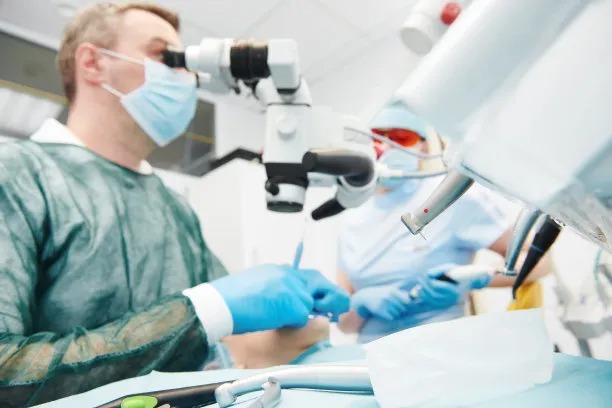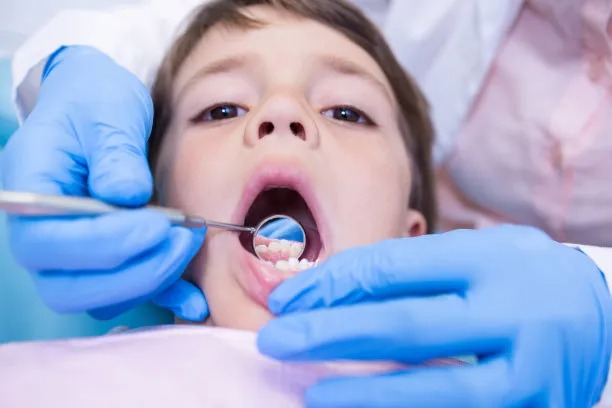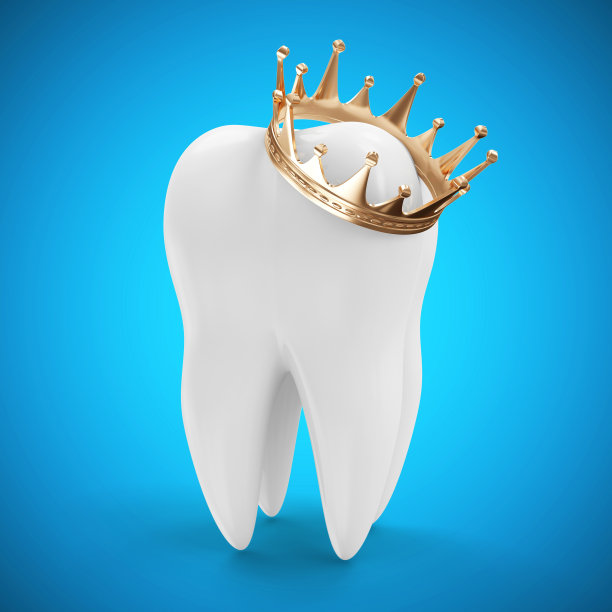Summary: Tooth extraction is often seen as a last resort, but it can play a crucial role in enhancing overall dental health and wellbeing. This article explores the significance of tooth extraction, focusing on four key aspects: preventing the spread of oral diseases, alleviating dental pain, improving oral hygiene, and facilitating orthodontic treatment. By understanding these points, patients can make informed decisions regarding their dental health. Ultimately, tooth extraction, when necessary, can lead to improved living quality and a healthier mouth.
1. Preventing the Spread of Oral Diseases

One of the primary reasons for tooth extraction is to prevent the spread of oral diseases, such as periodontal disease or severe tooth decay. When a tooth is infected or severely damaged, it can serve as a breeding ground for harmful bacteria. These bacteria can propagate to adjacent teeth and even into the bloodstream, posing an overall health risk.
By removing the problematic tooth, dentists can eliminate this source of infection and mitigate the risk of further complications. This proactive approach protects not only the surrounding teeth but also the patients overall health, as untreated oral infections can lead to systemic issues, affecting the heart and other organs.
Furthermore, timely tooth extraction can halt the progression of periodontal disease, which can lead to gum recession and eventually tooth loss. By addressing these issues early through extraction, patients can help sustain their dental health and prevent future, more complicated and costly procedures.
2. Alleviating Dental Pain
Dental pain is often a significant driving force behind the decision to extract a tooth. Pain can be a result of various factors, including advanced dental decay, infections, or impacted teeth. Such discomfort can severely affect ones quality of life, making it difficult to eat, sleep, or concentrate.
Tooth extraction offers a definitive solution to alleviate this pain. Once the offending tooth is removed, patients often experience immediate relief, allowing them to return to normal activities more swiftly. This relief is particularly beneficial for individuals who have been suffering from chronic dental pain, as it enhances their overall wellbeing.
Moreover, alleviating pain can also reduce anxiety and stress associated with dental issues, leading to improved mental health. By addressing the source of discomfort, patients can experience an overall boost in morale and motivation to commit to better dental care practices.
3. Improving Oral Hygiene Practices
Good oral hygiene is essential for overall health, yet certain dental situations can make it challenging to maintain. For instance, overcrowded teeth can make cleaning difficult, resulting in plaque buildup and cavities. In such cases, tooth extraction can significantly improve oral hygiene.
By removing problematic or extra teeth, patients can better access all areas of their mouth, making brushing and flossing more effective. This improved accessibility allows for cleaner gums and teeth, thereby reducing the risk of further dental issues down the line.
Additionally, with fewer teeth to manage, individuals may find it easier to adhere to a consistent oral hygiene routine. Enhancing oral hygiene not only boosts dental health but also promotes fresher breath and a more radiant smile, contributing further to ones overall confidence and wellbeing.
4. Facilitating Orthodontic Treatment Success
Orthodontic treatment, often sought to correct misaligned teeth or bite issues, occasionally necessitates tooth extraction to create adequate space for alignment. By removing certain teeth, orthodontists can more effectively manipulate the remaining teeth, ensuring a more successful outcome.
This is particularly relevant for patients with crowded teeth, where extractions may be crucial to achieving the desired result. Post-extraction, patients typically experience improved outcomes and faster treatment times as the remaining teeth can move into the correct positions more freely.
Furthermore, the efficiency gained from a properly positioned set of teeth can lead to better functionality when eating and speaking. This adds not only aesthetic value but also functional benefits, enhancing the overall quality of life for those undergoing orthodontic treatment.
Summary:
The article sheds light on the critical importance of tooth extraction and its effects on dental health and general wellbeing. By preventing the spread of diseases, alleviating pain, improving oral hygiene, and facilitating orthodontic treatment, tooth extraction can be a cornerstone of promoting better dental health.
In conclusion, when necessary, tooth extraction can positively impact an individuals overall well-being. This procedure not only addresses immediate dental issues but also fosters a long-term commitment to oral health.
This article is compiled by Vickong Dental and the content is for reference only.
Vickong Dental
Vickong Dental is a large medical group established in Hong Kong in 2008 by professors from well-known medical universities in Guangdong and Hong Kong, as well as medical doctors from key national '985' universities (including Master's supervisors and senior professors). The chain of branches brings together expert dentists with PhDs and Master's degrees from Hong Kong and Mainland China, committed to providing high-quality dental treatment.
"Vickong Dental Practices the University Motto of 'Healing and Serving Society,' with a Stable Operation for Sixteen Years. It Has Been honored with Hong Kong Enterprise Leaders's Choice,' and is a Global Trusted Implant Center for the Nobel Implant System. Recommended by Hong Kong Metro Broadcast and Guangdong Television, it Serves Customers from Over Thirty Countries and Regions, Gaining the Trust and Favor of Citizens from the Guangdong-Hong Kong-Macau Greater Bay Area and Surrounding Cities.

Thousands of customers' unanimous praise
The most recognized and highly recommended dental service by customers in the Guangdong-Hong Kong-Macau Greater Bay Area
We Ensure You Receive Detailed Care and Attention Here
Hong Kong standards, Shenzhen prices, Your Trusted English-speaking dentists

Vickong Dental Medical-Grade Instrument Disinfection Process
Vickong Dental Medical-Grade Instrument Disinfection Process

Vickong Dental Chain: A Warm and Comfortable Environment for Treatment






Appointment Hours

Q&A
Why choose Vickong Dental?
Vickong Dental practices the university motto 「Medicine to Benefit Society」, with each branch bringing together highly qualified dentists with doctoral and master’s degrees from Hong Kong and the Mainland, and has maintained seventeen years of steady operation。Recipient of 「2024 Hong Kong Enterprise Leaders Brand」, 「2025 Hong Kong Enterprise Leaders Brand」, a Nobel Biocare Global Trusted Implant Center, and a brand recommended by Metro Radio Hong Kong and Guangdong TV。
To date, we have served customers from more than thirty countries and regions,earning exceptionally high word-of-mouth recognition and trusted recommendations from residents across the Guangdong-Hong Kong-Macao Greater Bay Area and surrounding cities
We have eight major branches in Zhuhai、Shenzhen,and a consultation and service assurance center in Hong Kong,so you can book a free consultation at any time for any questions,which is very reassuring.
If I do not accept the quotation after the CT scan, will I be charged??
No! As long as the actual treatment has not started, you will not be charged any fees.
Will there be any additional charges during the treatment process?
No, there won’t be any additional charges. Before treatment begins, we will clearly explain the treatment plan and its corresponding fees. Only after the patient agrees and signs the consent form will we proceed with the dental service.
Can I pay in Hong Kong dollars?
Yes. Vickong Dental accepts payment in Hong Kong dollars. The amount will be converted based on the exchange rate of the day, and the applicable rate will be clearly communicated to you in advance.
Can I reschedule my appointment at any time?
Yes. Please contact us via **WeChat** or **WhatsApp** as early as possible, providing your original appointment time and details, along with your preferred new date and time slot for rescheduling.













